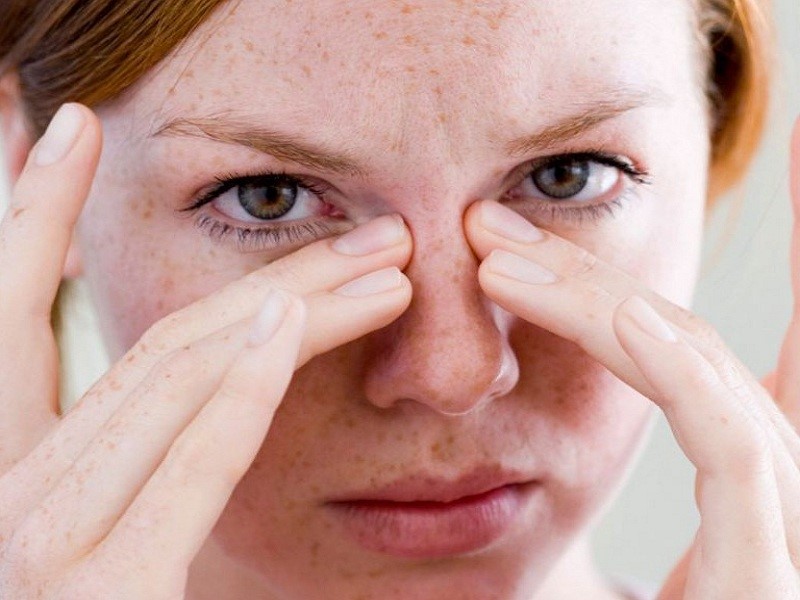
HPV infection and cancers of the nose, mouth and throat: what is there to know?
Human Papilloma Virus (HPV) can infect the skin and mucous membranes of the mouth, oesophagus, genitals and anal area; infections are common and often asymptomatic, as they are usually suppressed by the immune system
In some cases, however, the Papilloma virus causes tumours of the oropharynx (tonsils, lingual base and soft palate), anus, vulva, cervix and penis.
The reason for this different behaviour is not yet clear; it is probably related to an insufficient action of the immune system at the time of infection, which results in chronicity.
What happens when one comes into contact with the HPV virus?
HPV is a very common virus, forming a family of more than 100 different varieties.
Depending on the type and family to which the virus strain one comes into contact with belongs, the effects of infection are very different:
- asymptomatic in some cases;
- responsible for verrucoid lesions in others;
- causing malignant tumours in more severe cases, mainly belonging to strain 16.
In particular, HPV is responsible for almost all cancers of the cervix, about 95 % of cancers of the anus, 26 % of cancers of the oropharynx in Italy and 70 % in the USA, 65 % of vaginal cancers, 50 % of vulvar cancers and 35 % of penile cancers.
How do you get HPV and how do you find out you have it?
HPV is spread when diseased skin and mucous membranes come into contact with those of a healthy person, for instance, during vaginal, anal and oral sex.
For this reason, habitual practice with multiple partners and promiscuous sexual intercourse are considered high-risk behaviour.
The infection is often asymptomatic and tumours sometimes develop long after infection, which is why patients often do not realise they have contracted it and the doctor cannot date when the virus was contracted.
Secondary prevention is therefore essential, represented by annual gynaecological check-ups according to the Guidelines, Pap tests and HPV tests, even for women vaccinated against the virus.
For men, on the other hand, there is no need for special examinations as there is no standardised and routine screening method, but the vaccine is still recommended as a method of primary prevention of the disease.
Can HPV infection be cured?
To date, there is no cure for HPV infection.
People often recover without symptoms and without even realising it: about 90% of infections have a spontaneous course with resolution through the production of antibodies by the immune system.
However, some viruses such as HPV 16 and 18 are more aggressive than others, the infection does not evoke a detectable immune response that can even lead to reactivation of the virus over time.
Prevention for HPV
Primary prevention is through vaccination, as well as the adoption of healthy lifestyles: cervical cancer can be prevented by a vaccine against the most frequent HPV types, recommended for both males and females.
In addition, the use of condoms or dental dams, thin rectangular sheets of soft latex or silicone that cover the mucous membranes during oral sex, is recommended every time there is vaginal, anal or oral intercourse.
Tumours of the oropharynx: how to tell if HPV is the cause?
Most patients who contract the infection overcome it without sequelae.
For unknown reasons, however, some people are unable to recover, and the virus lurks in the cells, creating a kind of chronic inflammatory stimulus that causes cell damage over the years, leading to tumour degeneration.
When a tumour is diagnosed among those that can be correlated with the virus (e.g. of the oropharynx or cervix), the intracellular presence of HPV is also tested: this is the only way to ascertain the involvement of the virus.
Treatment and care of HPV tumours of the oropharynx
Patients with HPV-related oropharyngeal cancer respond better to cancer treatment than those with the same non-HPV tumour.
The therapeutic decision is made on the basis of the stage, location, size of the disease and general condition of the patient, while also considering any other diseases the patient may have.
Studies show that patients who have had HPV-related cancer, regardless of severity, have a significant likelihood of developing other HPV-related cancers up to 25 years after diagnosis.
Smoking and alcohol, an added risk
Heavy smokers and drinkers are at higher risk of developing mouth, nose and throat cancers, and although HPV-related oropharyngeal cancers can occur independently of these risk factors, they
- worsen inflammation
- increase the risk of cancer occurrence;
- worsen the prognosis once they have arisen.
In fact, there is evidence that heavy smokers and heavy drinkers live shorter lives and are more likely to develop tumours that respond less effectively to treatment.
How to prevent mouth, nose and throat cancers
Oropharyngeal cancers caused by the papilloma virus can be prevented by abstaining from smoking and alcohol and by vaccinating against HPV: it has been shown that as the number of antibodies increases, the chance of developing a virus-related cancerous lesion decreases.
Vaccination makes it possible to
- achieve a 100% response to infection, preventing the virus from escaping the immune system;
- promote significantly greater antibody production with a persistent immune response over 14 years after vaccination without immunological boosters;
- prevent virus reactivation even in patients already exposed to the virus.
Read Also:
Emergency Live Even More…Live: Download The New Free App Of Your Newspaper For IOS And Android
Papilloma Virus Infection And Prevention
What Is The Papilloma Virus And How Can It Be Treated?
Pap Test, Or Pap Smear: What It Is And When To Do It
Rocketing Vaccine Cost Warning
The Vaccine Against HPV Lowers The Risk Of Relapse In Positive Women
HPV Vaccine: Why Vaccinating Against The Papilloma Virus Is Important For Both Sexes


